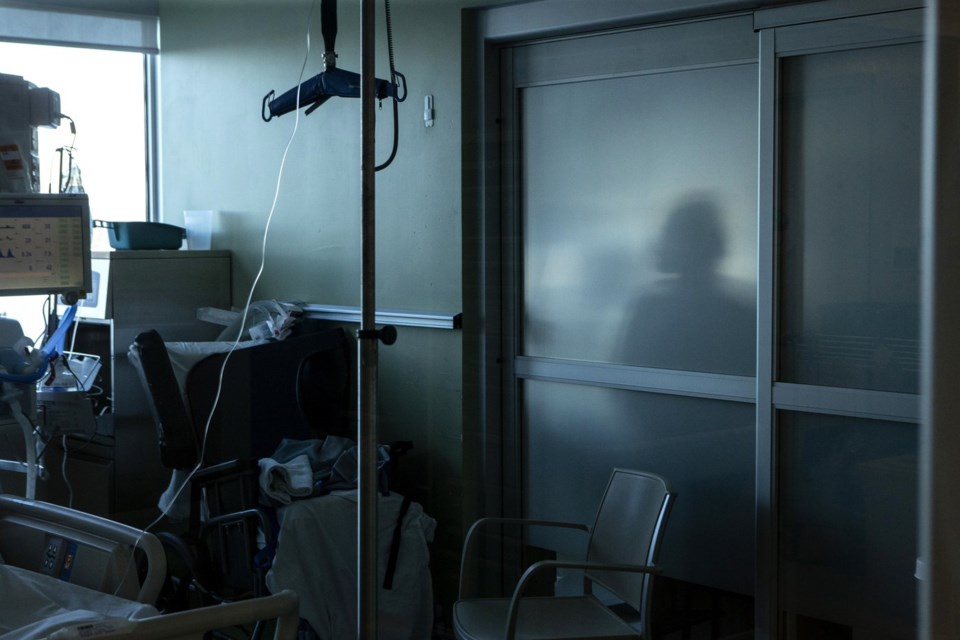TORONTO — Ontario hospitals spent more than $9 billion on nurses and other staff from for-profit agencies in a 10-year period, a new study concludes.
The Canadian Centre for Policy Alternatives study, released Monday, examined financial statements for 134 Ontario hospital corporations as well as data from the Canadian Institute for Health Information.
It found that from 2013-14 to 2022-23 public hospital spending on staff increased six per cent, but their spending on private agencies increased 98 per cent.
Study author Andrew Longhurst also found that while the number of hours worked by agency staff in Ontario hospitals accounted for 0.4 per cent of all front-line worker hours in 2022-23, six per cent of hospitals' labour costs went toward the private staff.
"So we're seeing a really poor value for money in terms of what Ontario taxpayers are getting in return," Longhurst said in an interview.
"What we're seeing is that the growth in private agency staff is really crowding out hospital budgets and their ability to make investments in the long-term workforce."
Hospitals turn to staffing agencies for qualified workers that can fill shifts on a temporary basis, but agencies charge double or even triple the regular hourly rate for their staff and hospitals want to reduce their reliance on them.
Longhurst recommends phasing out staffing agencies over three years and ultimately banning them, as Quebec has set out to do.
Ontario recently re-introduced legislation – which was originally tabled in late 2024 but was not passed before the provincial election was called – that would require agencies to report billing or pay rate information and would allow the government to publish some of those details.
Some critics and advocates hope it's a small step toward lowering and regulating agency fees, though Health Minister Sylvia Jones has not committed to that. She did say in question period Monday that she would not ban staffing agencies.
"We know that staffing agencies are a tool used primarily in rural and northern hospitals to avoid service disruptions," she said.
"In fact, it is a tool that they have been using for decades...Our government will not take away this important tool."
Jones touted moves the government has made to increase the number of nurses in Ontario, including paying post-secondary tuition for nurses who work in underserved areas, implementing programs for nurses to upgrade their skills, and more quickly license internationally educated nurses.
The increasing use of staffing agencies also does not appear to be solving the problem of staffing shortages, Longhurst said. He also found that from 2015 to 2024 the number of hospital job vacancies in Ontario increased by 331 per cent.
"The greater reliance and the increased spending on private agencies is really just driving hospital job vacancies," he said.
"You're hollowing out your public sector workforce, because those folks that are moving into agency work are no longer available to be hired as permanent employees."
Longhurst also recommends the province boost hospital base funding to the tune of $2 billion.
Rural and northern hospitals in particular rely on agency staff, and Longhurst's study shows the issue of associated cost has become more acute for them.
While in 2013-14 most hospital regions in the province spent around three per cent of their total front-line labour costs on agency staff – including 3.7 per cent in the northwest region – by 2022-23 that had risen to 17 per cent.
Green Party Leader Mike Schreiner said Ontario needs to hire more nurses, pay them fair wages and ensure safe working conditions so hospitals can avoid agency use.
"That's how we can deliver more care and better care at a lower cost," he said.
"(There is) a very minimal place for agency nurses in Ontario. Minimal. What's happening right now is so fiscally irresponsible and actually means we're paying more for less health care."
This report by The Canadian Press was first published May 12, 2025.
Allison Jones, The Canadian Press



